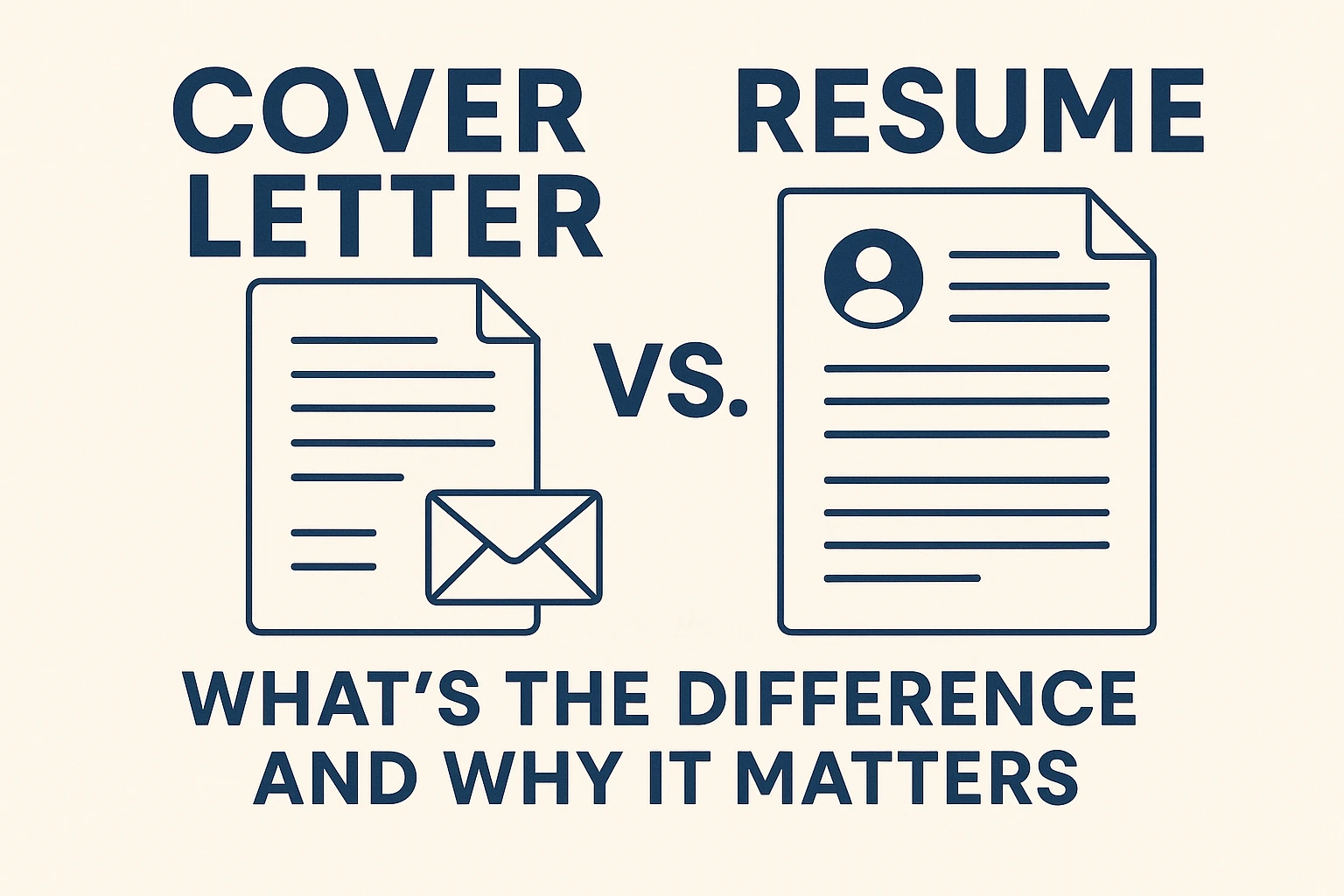
Most people know they need a resume. But when it comes to cover letters, confusion sets in. Do you need both? What’s the actual difference? And how do you make sure they work together—not just repeat the same information?
In this guide, we’ll break down the cover letter vs resume question clearly. You’ll learn the distinct purpose of each, how they complement one another, and how AI tools like Jobcamp.ai help you get both done right—without the usual stress.
A resume is a summary of your professional experience, tailored to match the role you’re applying for. It’s structured, concise, and focused on facts.
Think of it as your career’s highlight reel.
A cover letter is a short, persuasive note that introduces you and frames your resume in a human way. It explains why you’re applying and why you’re a good match.
Think of it as the trailer that gets people interested in your film.
Feature
Resume
Cover Letter
Purpose
Show your experience
Tell your story and intent
Format
Structured, bulleted
Narrative, paragraph-based
Length
1–2 pages
1 page or less
Tone
Professional, factual
Personal, persuasive
Common Mistakes
Listing tasks, not outcomes
Repeating resume content
Best Used When
Always
When applying with context
Some jobs only ask for a resume. But many still request or allow a cover letter—especially in roles that value communication, team fit, or leadership.
If you're applying for competitive or client-facing roles, skipping a cover letter may hurt your chances.
Tools like Jobcamp.ai streamline the entire process by:
You control the final voice—but AI helps you get from blank page to polished document in minutes.
Resume bullet:
“Led product launch campaign that generated 8,000 signups in 3 weeks.”
Cover letter reference:
“What excites me about this role is the chance to lead launch campaigns like the one I ran at [Company], where we hit 8,000 signups in under a month.”
The resume provides the fact. The cover letter connects it to the new opportunity.
You don’t have to choose between them. They do different jobs. A strong resume is essential—but a smart cover letter can tip the balance when it matters most.
With Jobcamp.ai, writing both doesn’t take double the effort. In fact, once your resume is uploaded, the AI pulls insights and generates a tailored cover letter for each role.
If your resume shows what you’ve done, your cover letter shows why it matters.
Q: Is a cover letter just a longer version of the resume?
A: No. A cover letter adds context and motivation. It complements the resume—it shouldn’t repeat it. Jobcamp.ai helps you strike the right balance.
Q: Can I send just a resume if no one asks for a cover letter?
A: Yes—but adding a short, smart cover letter still shows initiative. Jobcamp generates one quickly if needed.
Q: Which one gets read first?
A: Often the resume. But if it’s strong, the recruiter will read the cover letter next to learn more.
Q: Should my cover letter mention what’s already in my resume?
A: Briefly—but in a way that ties it to the specific role. Jobcamp does this automatically.
Q: How do I make sure my cover letter and resume don’t sound like AI?
A: Use Jobcamp to get a polished draft, then tweak tone or add personal insight. That’s how you get the best of both worlds.
Join thousands of job seekers who receive our weekly newsletter with insider tips, trends, and opportunities.